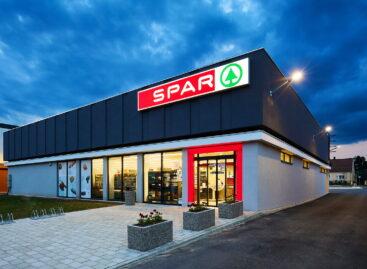Corner stores are slowly disappearing: 22,000 stores have disappeared in four years
By the end of 2024, more than 5,200 retail stores had closed in Hungary, according to the latest data from the Hungarian Central Statistical Office (KSH). This is not a new trend: since the onset of COVID, nearly 22,000 shops have shut down, meaning one in five has disappeared from the market. Behind the closures are not only signs of economic distress, but also a deeper structural transformation—one in which small shops are the biggest losers, as explored in a recent article by Pénzcentrum.
 At the end of 2024, there were 101,000 retail outlets operating in Hungary—5,200 fewer than a year earlier. The sharpest declines were recorded in Tolna County (–6.9%) and Budapest (–5.7%). The fewest closures occurred in Borsod and Nógrád Counties, although these already have the lowest shop density in the country.
At the end of 2024, there were 101,000 retail outlets operating in Hungary—5,200 fewer than a year earlier. The sharpest declines were recorded in Tolna County (–6.9%) and Budapest (–5.7%). The fewest closures occurred in Borsod and Nógrád Counties, although these already have the lowest shop density in the country.
Meanwhile, shop sizes are growing: over the past decade, the average floor area has increased from 122 to 163 square meters. This clearly indicates market concentration, noted Tamás Kozák, Secretary General of the National Trade Association, in response to Pénzcentrum’s inquiry.
A striking contradiction is that while the number of shops is falling, retail turnover volume is rising. This suggests that fewer, but larger and busier stores are now serving consumers. As of Q1 2025, there are 106 stores per 10,000 inhabitants nationwide—the most in Tolna County, the fewest in Pest County. In Budapest, per capita shop turnover exceeded the national average by 24%.
The biggest casualties of this shift are small shops. According to Tamás Kozák, primarily individually owned businesses have disappeared—down by one-third in the past ten years. Among grocery stores, the decline is around 25%.
In addition to structural issues, the regulatory environment imposes a heavy burden. Katalin Neubauer, Secretary General of the Hungarian National Retail Association, stated that even though the markup cap does not apply to small shops, it still puts them at a competitive disadvantage. “Small shops cannot operate with the low margins that multinationals can afford, and so they can’t offer competitive prices either,” she explained.
The absurdity of the situation is exemplified by the case of watermelons: while a major retail chain sells them for 169 forints per kilo, a small retailer must charge up to 500 forints to make a profit. This threefold difference stems from disparities in wholesale prices—small shops can’t achieve the purchase volumes needed for favorable terms. Naturally, consumers opt for the cheaper option, inadvertently pushing small retailers out of the market.
According to professional organizations, retail regulation does not help level the playing field. The mall development ban, the retail surtax, excessive bureaucracy, and the EU’s highest VAT rate of 27% are all factors that hinder the operation of small shops. Development becomes unfeasible, and opening new stores is increasingly risky.
Based on the numbers and trends, the future of Hungarian retail appears to lie in larger, more efficient stores. Small shops can only remain competitive if regulatory pressure eases, administrative burdens decrease, and meaningful dialogue begins between policymakers and industry stakeholders.
Related news
SPAR regarding the Kisújszállás store closure: there is no talk of a nationwide wave of store closures
🎧 Hallgasd a cikket: Lejátszás Szünet Folytatás Leállítás Nyelv: Auto…
Read more >Related news
How to spend Valentine’s Day around here
🎧 Hallgasd a cikket: Lejátszás Szünet Folytatás Leállítás Nyelv: Auto…
Read more >OKSZ on the extension of the margin stop decree
🎧 Hallgasd a cikket: Lejátszás Szünet Folytatás Leállítás Nyelv: Auto…
Read more >








